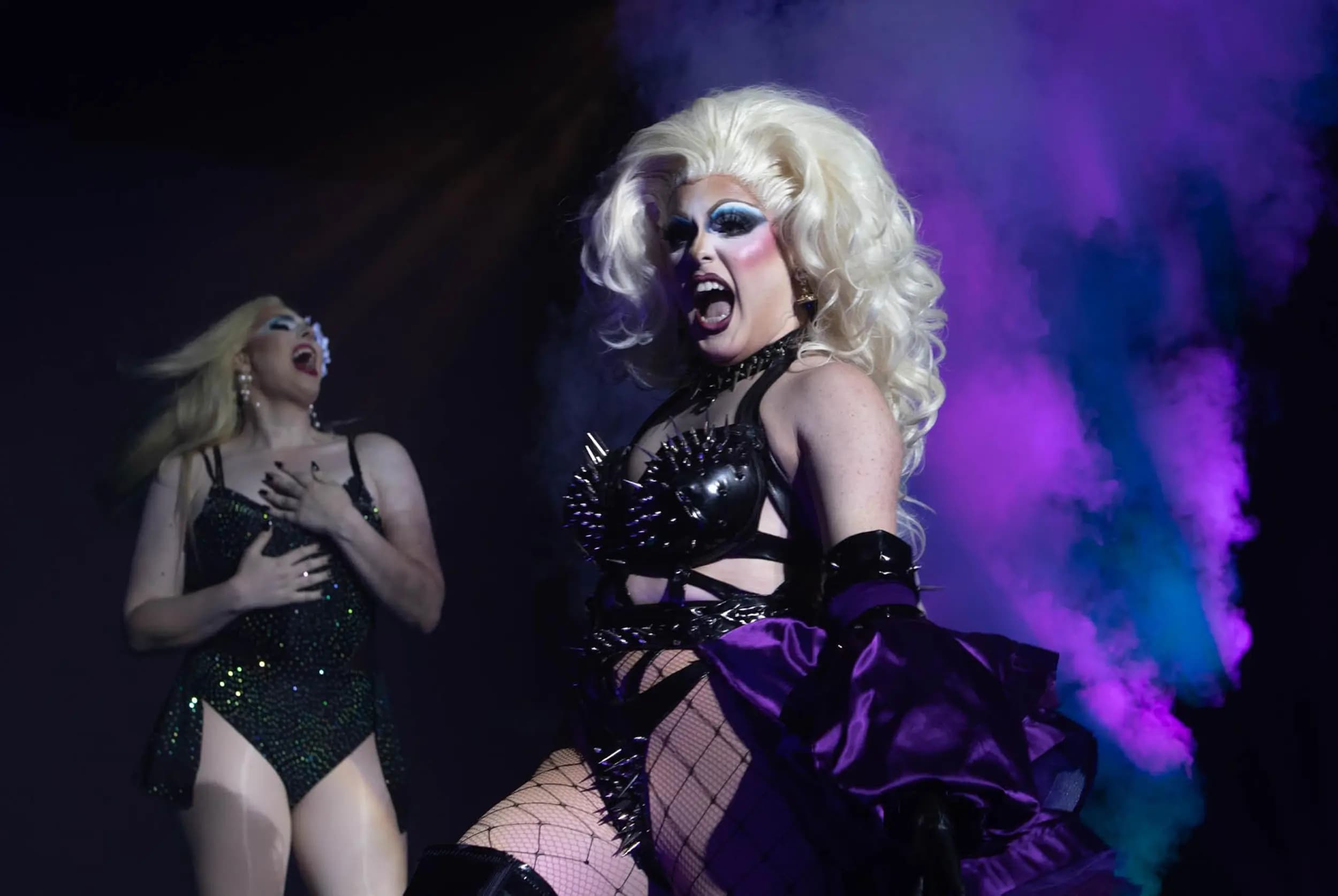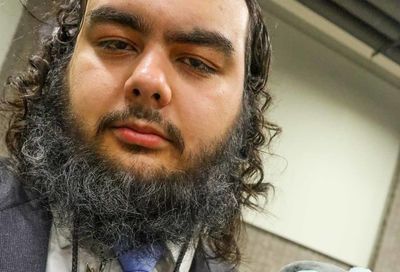Federal Judge Blocks Texas from Enforcing Drag Ban
A temporary restraining order blocks authorities from fining businesses and potentially jailing performers who host drag shows.

Last week, a federal judge in Texas blocked the state from enforcing its law seeking to ban drag performances by designating them as “sexually oriented” performances that are prohibited from occurring in public places, state-funded facilities, or venues where minors may potentially view them.
The law, signed by Republican Gov. Greg Abbott earlier this year, prohibits businesses from hosting performances that feature nudity — real or simulated — or contain sexually-tinged content, as well as shows with any simulation or representation of sexual acts or the use of accessories that “exaggerate male or female sexual characteristics,” such as prosthetic breasts.
Establishments that violate the law can be fined $10,000 per occurrence, while performers found in violation can face up to a year in jail, a fine of $4,000, or both. To avoid violations, businesses wishing to host drag shows — even those void of sexual content — will likely have to card patrons to ensure they are over 18 years old.
For businesses that are not explicitly bars or nightclubs, the cost of hosting a drag performance would outweigh the business they’d lose by instituting an age limit, thereby leading those venues to cancel such performances, which appears to be the main intent of the law.
Critics of the ban have sued the state seeking to block the law from being enforced, arguing that it is overly broad and therefore ripe for abuse by state authorities or law enforcement.
They may use their interpretations of the law’s language to target businesses or individuals for prosecution based on personal biases. This could include individuals who are not in drag but are wearing clothing that doesn’t align with their assigned sex at birth.
The lawsuit also argues that the ban should be overturned as unconstitutional for infringing on performers’ free speech and freedom of expression.
Although the law was scheduled to take effect last Friday, a federal judge sided with the plaintiffs in the lawsuit and issued a temporary restraining order to block the state from enforcing the law, reports The Hill.
That order is expected remain in place until U.S. District Judge David Hittner decides to either issue a temporary injunction continuing to block the law from being enforced, or allow the law to take effect while the constitutional merits of the law are argued in court.
“The court finds there is a substantial likelihood that S.B. 12 as drafted violates the First Amendment of the United States Constitution under one or more of the legal theories put forward by the Plaintiffs,” Hittner, of the Southern District of Texas, wrote in his opinion.
The Texas attorney general’s office has argued that the drag ban is narrowly tailored to protect children from sexually explicit performances, noting that the law does not explicitly ban drag shows.
However, that flies in the face of statements made by Abbott and Lt. Gov. Dan Patrick.
In a social media post issued after signing the law, Abbott linked to a Metro Weekly article about his actions, affirming that the law was intended to “ban drag performances in public.”
Texas Governor Signs Law Banning Drag Performances in Public.
That's right.
https://t.co/eC7OqElsbU via @metroweekly— Greg Abbott (@GregAbbott_TX) June 25, 2023
Patrick, meanwhile, championed the law as a necessary step to “fight back against the radical Left’s degradation of our society and values,” declaring that drag performances sexualize children and scar them emotionally for life.
“The people of Texas were appalled to learn of an increasing trend of obscene, sexually explicit so-called ‘drag’ performances being marketed to families with children,” Paige Willey, the director of communications for the attorney general’s office, said in a statement, as reported by the Texas Tribune. “The Office of the Attorney General will pursue all legal remedies possible to aggressively defend SB 12…and uphold public decency.”
Similar bills seeking to ban drag performances or force them to surmount various regulatory hurdles by classifying them as “adult-oriented” performances have passed in five other states. However, laws in Florida, Montana, and Tennessee have been blocked by judges who have found, at least preliminarily, that such restrictions may violate the First Amendment’s protections for freedom of speech and expression.
Drag performers argue that the law is not only intended to ban them from the public square, but to make it virtually impossible for them to perform in any venue.
“Texas queens and kings from across our great state have been targets of threats and misinformation as a result of the anti-drag law,” Brigitte Bandit, a drag performer who is one of the plaintiffs in the lawsuit, told The Associated Press. “Our community will not be used as a scapegoat or a distraction by politicians who do not know who we are or what we do.”
Support Metro Weekly’s Journalism
These are challenging times for news organizations. And yet it’s crucial we stay active and provide vital resources and information to both our local readers and the world. So won’t you please take a moment and consider supporting Metro Weekly with a membership? For as little as $5 a month, you can help ensure Metro Weekly magazine and MetroWeekly.com remain free, viable resources as we provide the best, most diverse, culturally-resonant LGBTQ coverage in both the D.C. region and around the world. Memberships come with exclusive perks and discounts, your own personal digital delivery of each week’s magazine (and an archive), access to our Member's Lounge when it launches this fall, and exclusive members-only items like Metro Weekly Membership Mugs and Tote Bags! Check out all our membership levels here and please join us today!

























You must be logged in to post a comment.